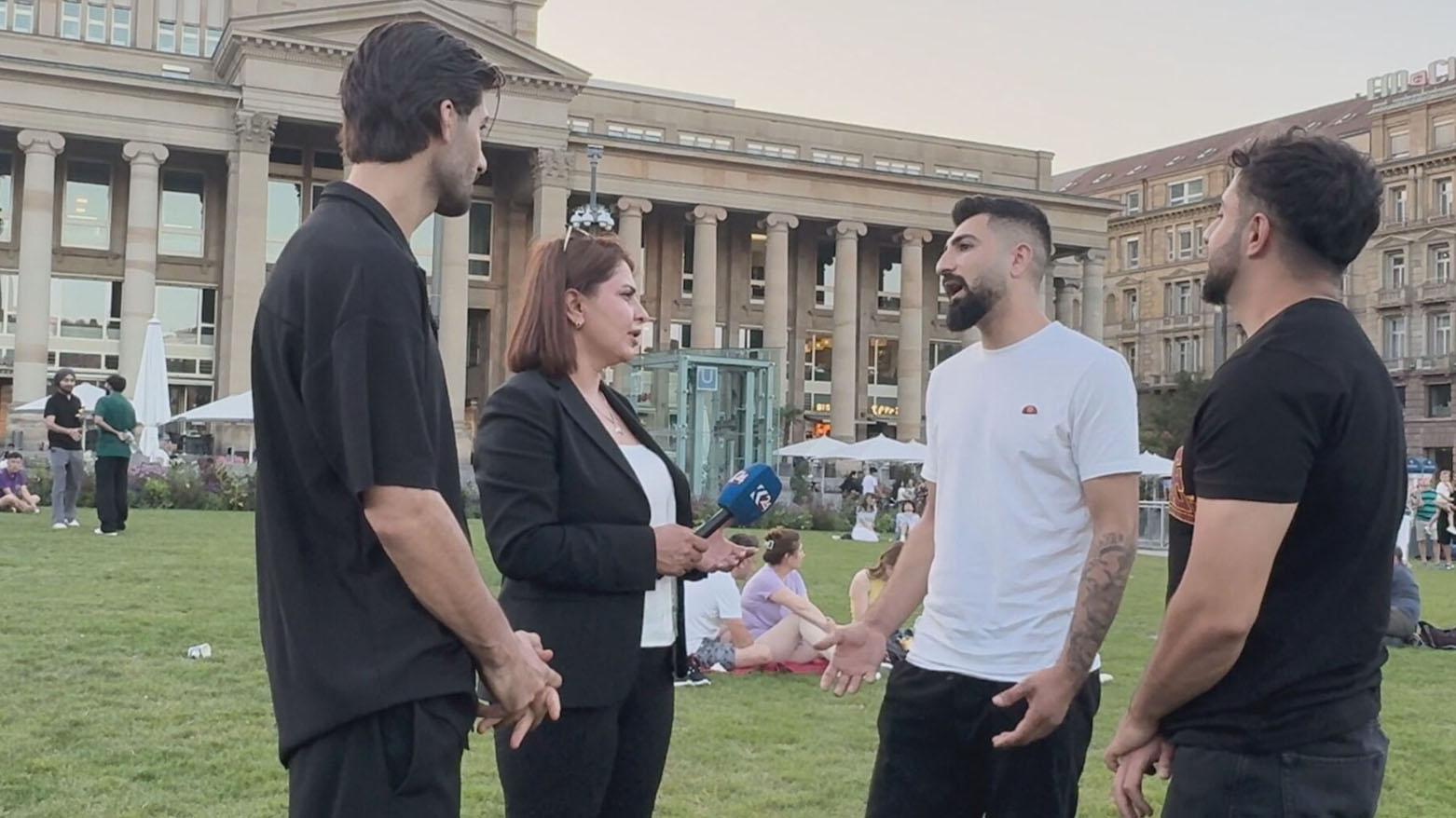Dreams on Hold: Germany’s Tougher Asylum Laws Shatter Hopes of Kurdish Refugees
Kurdish asylum seekers in Stuttgart face deportation and despair as Germany tightens laws, extending detention and accelerating removals. Many who fled war now battle anxiety over uncertain futures in a once-welcoming nation now turning them away.

ERBIL (Kurdistan24) – In the bustling streets of Stuttgart, where life moves at a relentless pace, hundreds of Kurdish refugees are gripped by anxiety and despair. What once seemed like a path to a better life has turned into an ordeal of waiting and uncertainty, as Germany’s recent tightening of asylum and immigration laws has closed doors that were once open, placing their futures in jeopardy.
“It is no longer as it used to be,” say many refugees who spoke to Kurdistan24. Having travelled thousands of kilometers fleeing their homelands, they now find themselves facing rigid regulations and an uncertain future. Germany, once imagined as the “European paradise,” is no longer the land of opportunity they had dreamed of.
The suffering is reflected in deeply personal stories. Omid Khalid, a young Kurd who has spent seven years in Germany, expressed his frustration: “My application has been rejected several times. This situation is extremely difficult psychologically.”
Dzhwar Agid, unable to hold back his tears, shared an even more painful account: “I have been deported twice. My life here is destroyed. I wish I had never come.”
The feeling of disillusionment extends beyond young individuals to entire families who had hoped to secure a future for their children. One Kurdish family told Kurdistan24 that Germany no longer needs foreign workers as it once did, pointing to rising unemployment rates that make integration and finding jobs more difficult.
This sentiment is echoed by Mohammad Sobhi, a refugee who has been working in Stuttgart for three years yet is still awaiting his residency decision. “I am constantly waiting for a response from the lawyer. I don’t know if I will get residency or not. This anxiety is killing me,” he said.
These concerns are mounting amid sweeping changes to Germany’s migration policy. In February 2024, the “Return Improvement Act” (Rückführungsverbesserungsgesetz) came into force, aimed at expediting the deportation of rejected asylum seekers. Under this law, pre-deportation detention was extended from 10 to 28 days, and police were granted broader powers to enter refugee accommodation centers to locate individuals slated for removal.
Adding to the unease is an agreement between Germany and Iraq to facilitate the return of Iraqi refugees, including Kurds, who have not been granted residency. Reports indicate that staff from the Iraqi embassy have been interviewing asylum seekers in Germany to verify their identities in preparation for deportation.
The refugee issue in Germany, as in many European nations, has evolved into a complex legal and humanitarian challenge. While the country once served as a safe haven for hundreds of thousands, its policies now appear to be shifting toward restriction and closure.
For Kurdish refugees in Stuttgart, each passing day brings a fresh wave of anxiety and a troubling question: what will tomorrow hold in a country where the struggle to stay has become even harder than the journey to arrive?
Kurdistan24 correspondent in Germany contributed to this article.
